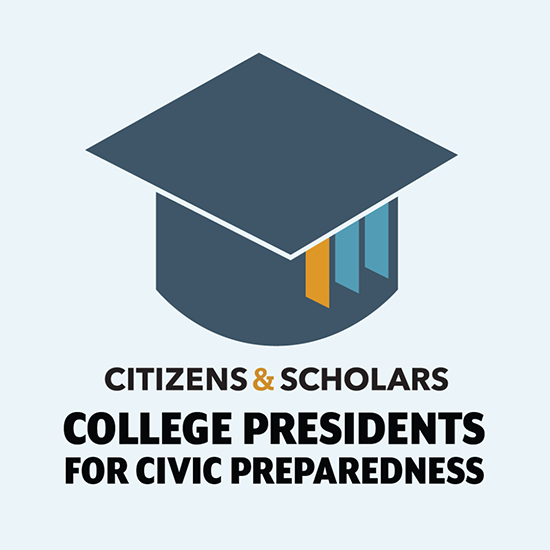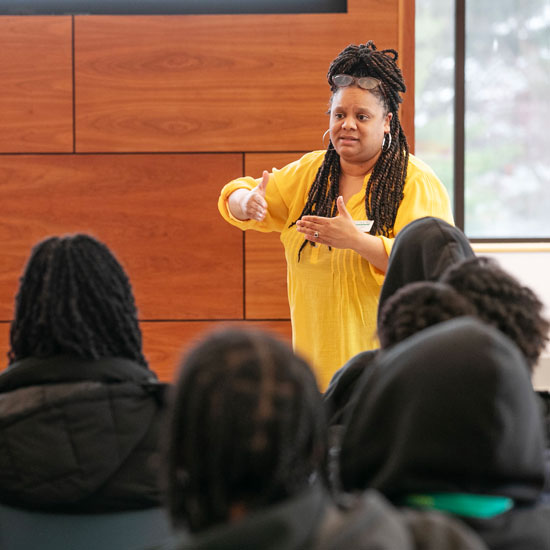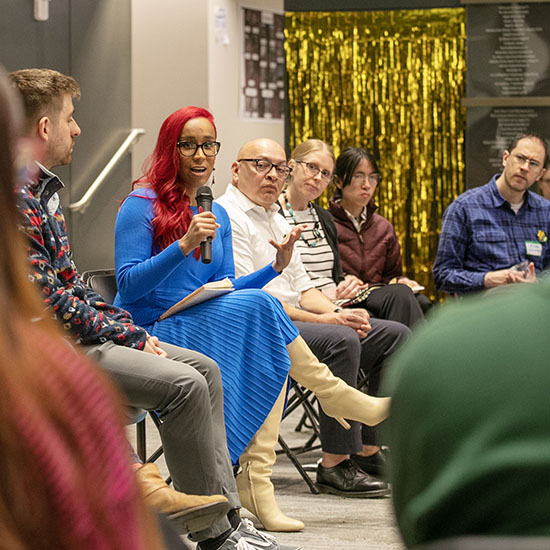A letter from the President
To the Skidmore College community:
The recent controversy surrounding a case of sexual misconduct on our campus has underscored both the considerable complexities involved in addressing this issue and how far we still have to travel in making Skidmore the type of community we all want it to be. After more than eleven years at Skidmore and as a parent myself, I am profoundly troubled by the problem of sexual assault in our country and its persistence on our campus and so many others. Such acts do violence to our core values and have no place in our community. In the past few years, we have redoubled our efforts to foster a climate of respect, with the safety of our students as our top priority. And even as we might disagree on the means of achieving it, I do believe we all share the goal of creating a campus environment in which all members of our community are free from mistreatment, harassment and the threat of violence.
Understandably, people are asking many questions. Some of these questions are answered on our web site. But our ability to respond to questions about any specific incident is constrained both by laws regarding the privacy of student records and our own institutional practices. Even so, this moment represents an opportunity for all of us to reflect and to learn. For my part, I believe it is important to review what Skidmore already is doing, the principles that guide us, and how we all can help move our community forward. To that end, it is important to acknowledge some of the complexities I mentioned above:
- We are not alone in facing the issue of sexual and gender-based misconduct. All colleges and universities are dealing with this challenge, and none has completely succeeded in overcoming it. Furthermore, the Office of Civil Rights, under Title IX, requires that all colleges enforce policies that prohibit sexual and gender-based misconduct and, when it is determined that a violation has occurred, take immediate and effective steps to end the behavior, prevent its recurrence, and remedy its effects.
- At Skidmore, individual cases of alleged sexual misconduct (and appeals arising from those cases) are adjudicated by Hearing Boards that comprise highly-trained and dedicated staff, administrators, and faculty members, all of whom have volunteered to undertake this difficult work on behalf of our community. They are charged with applying our policies, which have been developed after extensive input from the community and in very clear ways represent our values, one of which is to protect the rights of everyone involved. So all of us have a stake in upholding the integrity of our policies, and we need to acknowledge that the College is not free to pick and choose, at a given moment, which aspects of our policy to enforce and which to ignore.
- As has always been the case, we continue to evaluate and, where necessary, revise our policies and procedures. This year alone, we have submitted those policies and procedures for review by two different external teams of experts in this field. The College’s Board of Trustees has spent considerable time discussing and interrogating our policies as well. The Advisory Council on Sexual and Gender-Based Misconduct, which includes students, administrators, and faculty members, has held four Open Forums on this topic (the most recent occurred on March 24th) in addition to hosting a webinar for alumni and others earlier this week (March 31st), and we are exploring additional opportunities for input in the coming months.
- Disciplinary records, which are part of students’ overall educational records, are protected by Federal law (FERPA). Therefore, both because of legal requirements and institutional practice, we do not disclose such records. This means that, unlike the students involved, the College is not at liberty to provide the details about individual cases that would be required for a full and robust public discussion. So any such public conversation necessarily occurs in the absence of complete information. Especially when the media become involved, the consequences of this asymmetry in the ability to comment are just something we all have to be aware of and accept.
- Many of the voices we are hearing have urged us to adopt what would appear to be a simple and straightforward policy: anyone found responsible for sexual and gender-based misconduct should be expelled. We have considered this option – and we will continue to evaluate it – but there are other important dimensions to this question that also need to be part of the conversation:
a. First, sexual and gender-based misconduct encompasses a broad range of actions – from verbal harassment to violent assault. And therefore we have to look carefully before imposing a single, mandatory sanctioning requirement to cover that entire spectrum of behavior.
b. Second, our present policies already allow us, where appropriate, to expel a student who violates our policies. In fact, we have expelled students in the past for sexual and gender-based misconduct. Those decisions are made on a case-by-case basis by the Hearing Boards and reflect the judgment of the members of those Boards regarding all the complex and highly nuanced factors present in every case.
c. Third, as many institutions have observed – and as corroborated by testimony from members of our own community who have self-identified as survivors of sexual assault – reporting drops markedly when hearing boards are required to impose mandatory sanctions. The last thing we want to do is to make it less likely for students to report incidents of alleged misconduct.
d. Fourth, our current procedures allow the person who filed the complaint of sexual or gender- based misconduct to make recommendations for the Hearing Board to consider in determining the appropriate sanctions. For this reason, it has felt beneficial to reporting individuals for the Board to have a range of options before it and not just a single mandatory sanction.
I believe most of us would agree that prevention of unwanted behavior is the key to creating the community we all desire. Policies and procedures to deal with reported incidents are necessary and important. But at a Campus Conversation a week ago Tuesday, several students observed that the change we all want to see ultimately won’t come from a policy but rather from students themselves changing how they treat one another. As I said above, our goal is to foster an environment in which people act toward one another in accordance with our values. A major focus of our efforts here is programming to provide students with the skills to intervene in situations where someone might be at risk. Another important contribution is the Student Government Association’s “It’s Happening Here” campaign, which is raising awareness and generating support for action among our current students. But each of us has a role in helping to create the positive campus environment we desire.
We will continue to evaluate our policies, processes, and procedures – attempting to use what we learn through our experience, what members of the community say to us, what we see in the legal and regulatory environment, and what we hear about best practices at other institutions. These are complex, emotionally laden issues, and there are many perspectives across our community that must be represented in our deliberations. Ultimately, we are unlikely to be able to create a policy that will satisfy everyone. So we need to listen attentively to one another and engage in these conversations in good faith, presuming that even people who might disagree with us can still have the best interests of our students and the College in mind. We are in this together.
Philip A. Glotzbach
President
(Please note: President Glotzbach has written about this topic several times during the current academic year. Please click here to see earlier correspondence.)


